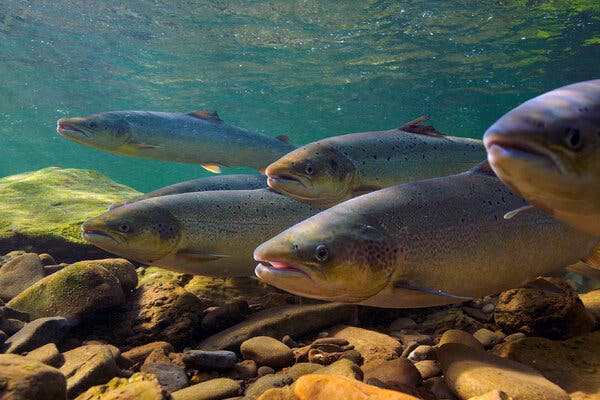Impact of Pharmaceuticals on Atlantic Salmon Behaviour
A recent study has revealed that wild Atlantic salmon are swimming faster due to human pharmaceuticals contaminating rivers. This unexpected result stems from the presence of drugs like clobazam, which have been found to alter salmon behaviour during their migration. While this seems beneficial, it raises concerns about the health of aquatic ecosystems.
Pharmaceutical Pollution in Rivers
Pharmaceuticals enter rivers primarily through human waste. Traces of various medications have been detected globally. Over 900 substances, including antidepressants and painkillers, affect wildlife behaviour. The presence of these drugs in water bodies poses a growing threat to aquatic life.
Research Findings
The study focused on juvenile salmon in River Dal. Salmon exposed to clobazam navigated hydropower dams more efficiently than unexposed fish. This indicates that while drugs may enhance navigation, the long-term effects on fish and ecosystems remain uncertain.
Behavioural Changes in Salmon
Clobazam not only improved travel times but also influenced social behaviours among salmon. Changes in shoaling behaviour suggest that drug exposure could make fish bolder and more prone to risk. Such alterations can have cascading effects, impacting predator-prey dynamics and overall ecosystem health.
Ecological Concerns
While faster migration may seem advantageous, it can lead to unforeseen consequences. Altered behaviours can disrupt natural ecosystems, affecting various species that share habitats. The Atlantic salmon, already endangered due to overfishing and habitat loss, faces an additional threat from pharmaceutical pollution.
Potential Solutions
Researchers advocate for addressing pharmaceutical pollution through improved wastewater treatment and green chemistry. Developing drugs that break down more easily in the environment could mitigate their ecological impact.
Month: Current Affairs - April, 2025
Category: Environment Current Affairs








